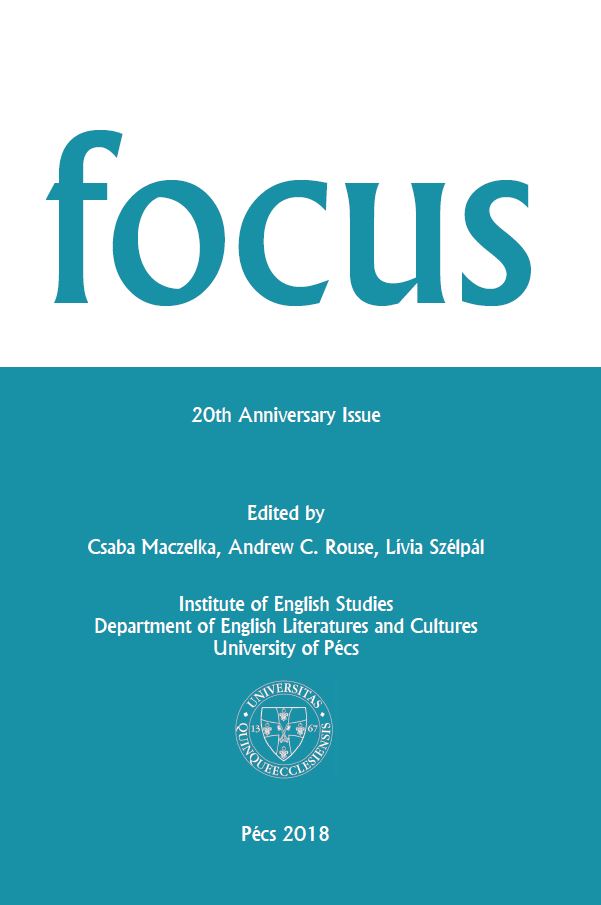The Witness, the Silenced, and the Rebel—Women in Search of Their Voice: Female Characters in Brian Friel’s Translations and Anne Devlin’s Ourselves Alone
DOI:
https://doi.org/10.15170/Focus.11.2018.8.105-122Abstract
It appears to have become a commonplace of Irish literary criticism that in Translations (1980) Brian Friel dramatizes largely national and historical issues. Referred to as his “most obviously postcolonial play” (Bertha 158), it is known for having the “nineteenth-century plot and setting [that] bore on Anglo-Irish relations in the present” (Roche, Theatre and Politics 2). Raising communal awareness, the play concentrates on the “key transitional moment when Irish gave way to English, when a culture was forced to translate itself into a different linguistic landscape” (Pelletier 68). In such a collectively damaging situation, personal problems could easily be overlooked. However, Ondřej Pilný emphasizes that Friel in general was “interested predominantly in individual people and their emotions, in their micro-narratives and their position within the surrounding discourse” (113). Whereas the hardships and traumas depicted in Translations, and especially their consequences, are suffered by the characters as members of a community in the first place, this does not necessarily mean that personal issues are missing from the drama.
Downloads
Published
How to Cite
Issue
Section
License

This work is licensed under a Creative Commons Attribution-NonCommercial-NoDerivatives 4.0 International License.
FOCUS: Papers in English Literary and Cultural Studies follows the principles laid down by Creative Commons, which provides guarantees for the Author’s copyright while also ensuring that intellectual properties are made available for the wider public in a digital form. All papers submitted to the journal apply the following licence conditions (indicated on the journal’s website as well as in individual publications):
“© This work is licensed under a Creative Commons Attribution-NonCommercial-NoDerivatives 4.0 International License.”
You are free to:
- Share, copy and redistribute the material included in the journal in any medium or format under the following terms:
- Attribution — You must give appropriate credit to the Author, and indicate the original place of publication [FOCUS: Papers in English Literary and Cultural Studies, Issue nr., page numbers.].
- NonCommercial — You may not use the material for commercial purposes.
- NoDerivatives — You are not allowed to remix, transform, or build upon the material.
- The above conditions must always be indicated if the journal material is distributed in any form.
- The above conditions must always be met, unless a written permission signed by the Author and the Editor-in-Chief states otherwise.

